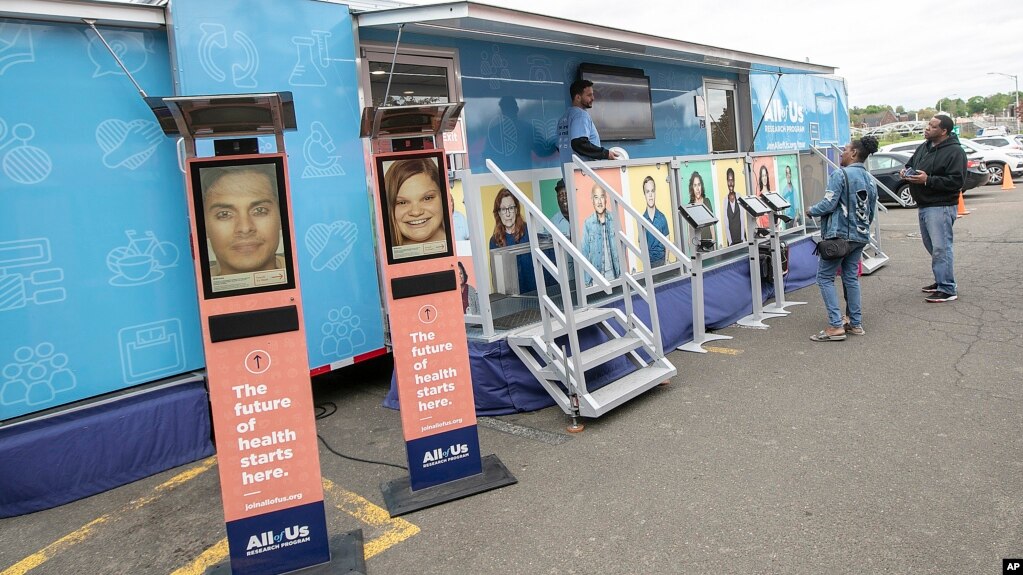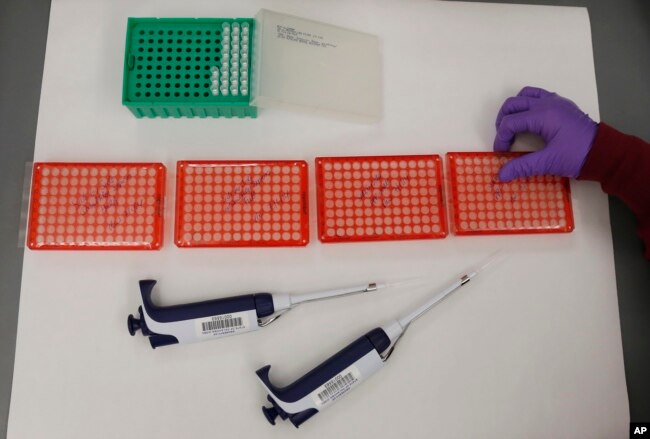Huge US Study Starts Sharing Gene Findings with Volunteers

DNA is the main molecule that carries genetic information in the cells of living things. More than 155,000 Americans who shared their DNA for science are about to learn something in return: Do they have any worrisome genes?
It is part of a very large study to see how people’s genetics, environments, and behavior combine to govern their overall health.
The National Institutes of Health (NIH) said recently it is now starting to tell those in the study about some early findings. Like if they carry variants that can cause any of 59 genetically passed down diseases or cause medication problems.
Because everyone with the same gene will not have the same health outcome, sharing those results may mean new discoveries.
Dr. Josh Denny heads the NIH’s study, called “All of Us.” He asked, “What are the drivers in that variability?” And he added, “The way they change their behaviors in response to the findings, we’ll be able to look at that.”
The All of Us study is a never-before-seen effort to reduce differences in healthcare and end today’s one-size fits all care. Researchers aim to follow 1 million people from different groups for at least ten years. Their goal is to better understand the complex combinations of reasons that decide why one child gets sick and not another, or why a cure for one patient fails in another.
Volunteers share DNA samples, medical records and health history. About 560,000 have signed up so far. And more importantly, nearly half are from racial and ethnic groups historically left out of medical research.

FILE - Tools used for DNA testing are pictured in a lab at the Oklahoma State Bureau of Investigation in Edmond, Oklahoma on August 1, 2014. (AP Photo/Sue Ogrocki/File)
Traditionally, such studies are like a one-way street – scientists learn a lot from volunteers who get little personal information in return. But in an unusual move, All of Us volunteers get to decide if they want to learn health-related genetic findings, long before the study’s finished.
Rachel Peterson is an NIH employee who volunteered for All of Us before recently becoming a leading member of the project. An All of Us genetic counselor informed her that she was at increased risk of breast and ovarian cancer because of a gene named BRCA-2.
Peterson did not know that was a risk for her family. She plans to discuss health treatments with her doctor, such as increased breast cancer screening. She said, “I kind of shudder to think about what could happen if I hadn’t known this.”
Denny estimated two to three percent of study volunteers will learn they have a well-known genetic variant that can cause some cancers, heart conditions, or other health problems. Many more will have genetic variants that affect how their body processes some medicines.
For now, volunteers will only be given findings they can do something about, such as seeking earlier testing, or changing medications. They will be offered free testing, genetic counseling, and help with sharing the information with their doctors and family members.
But there is a lot more to learn. For example, many of the disease-linked genes were discovered by studying people of European ancestry.
Eric Venner of Baylor College of Medicine is a genetics expert. He said different variants may affect other ancestries. And his team is studying the data from All of Us to see which differences matter most to which populations.
Denny commented on the power of being able to talk to volunteers who they could work with for tens of years. If new findings affect study volunteers, “we’re going to keep things up to date,” Denny said.
Words in This Story
variant – n. something that is different in some way from others of the same kind
response – n. something that is done as a reaction to something else
sample – n. a small amount of something that gives you information about the thing it was taken from
counselor – n. a person who provides advice as a job
ovary – n. one of usually two organs in women and female animals that produce eggs and female hormones
shudder – v. to shake because of fear or cold
https://learningenglish.voanews.com/a/huge-us-study-starts-sharing-gene-findings-with-volunteers/6876602.html